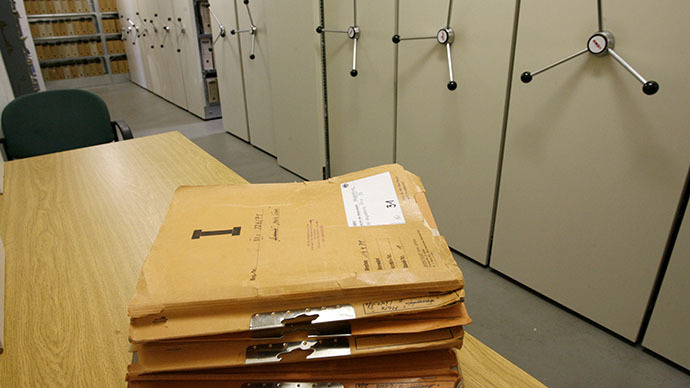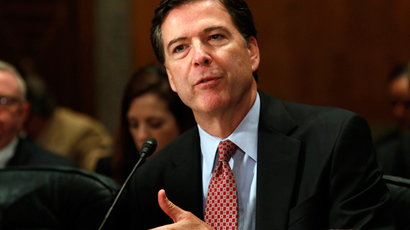‘Comedy of errors’: Sensitive FBI interrogation manual surfaces at Library of Congress

An FBI agent who authored a secret bureau interrogation manual made the seemingly unusual decision to submit the document for copyright protection, thereby making it publicly accessible through the Library of Congress, according to a new report.
The agent requested a copyright for the interrogation manual in 2010, leaving a copy with the US Copyright Office, where with a simple request US citizens are allowed to view any materials archived there. The employee, a supervisory agent who also worked as a unit chief with the FBI counterterrorism division, was unnamed in a report by Mother Jones, the first source to publish the story.
This news comes after the American Civil Liberties Union (ACLU) spent years in court trying to force the FBI to disclose its interrogation techniques. Included in that request was the interrogation manual in question, which spells out the methods agents are encouraged to use when they are questioning a subject.
The FBI did eventually turn over a heavily-redacted copy of the manual to the ACLU, but Mother Jones reports that the version sitting in the library is redaction-free and has been available for much of the legal battle.
“A document that has not been released does not even need a copyright,” Steve Aftergood, a government secrecy expert with the Federation of American Scientists, told the magazine. “Who is going to plagiarize from it? Even if you wanted to, you couldn’t violate the copyright because you don’t have the document. It isn’t available.”
That would appear to be obvious, leading some to speculate it was not a mistake at all and really an attempt to make the highly-sought after manual public. The agent attempted to register the copyright in his own name, which would have given him the rights – not his employer.
The manual dropped off at the Copyright Office is dated August 18, 2008, although it was not processed until January 2010. The FBI issued the redacted copy to the ACLU on February 23, 2011. Bureau officials are aware of the situation but a spokesman told Mother Jones he “cannot provide any further information at this time regarding this subject.”
Not everyone was buying the conspiracy theory, with Aftergood deeming the situation a “comedy of errors. It sounds like gross incompetence and ignorance.”
“Do they not cover this in orientation?” wondered Julian Sanchez, a fellow at the libertarian Cato Institute. “[Sensitive] documents should not be placed in public repositories – and, by the way, aren’t copyrightable. How do you even get a clearance without knowing this stuff? “
The ACLU’s chief complaint with the manual is that it authorizes agents to isolate detainees and frequently puts the KUBARK manual, a CIA interrogation document that endorses electric shocks, in a positive light.
It also stipulates that the guide is only to be used by the FBI’s “clean” teams, investigators who collect evidence for trial prosecutors. That would seem to imply that agents not collecting evidence for that purpose are not required to follow the manual.














